International
Argentina to ease exchange control for oil and gas companies
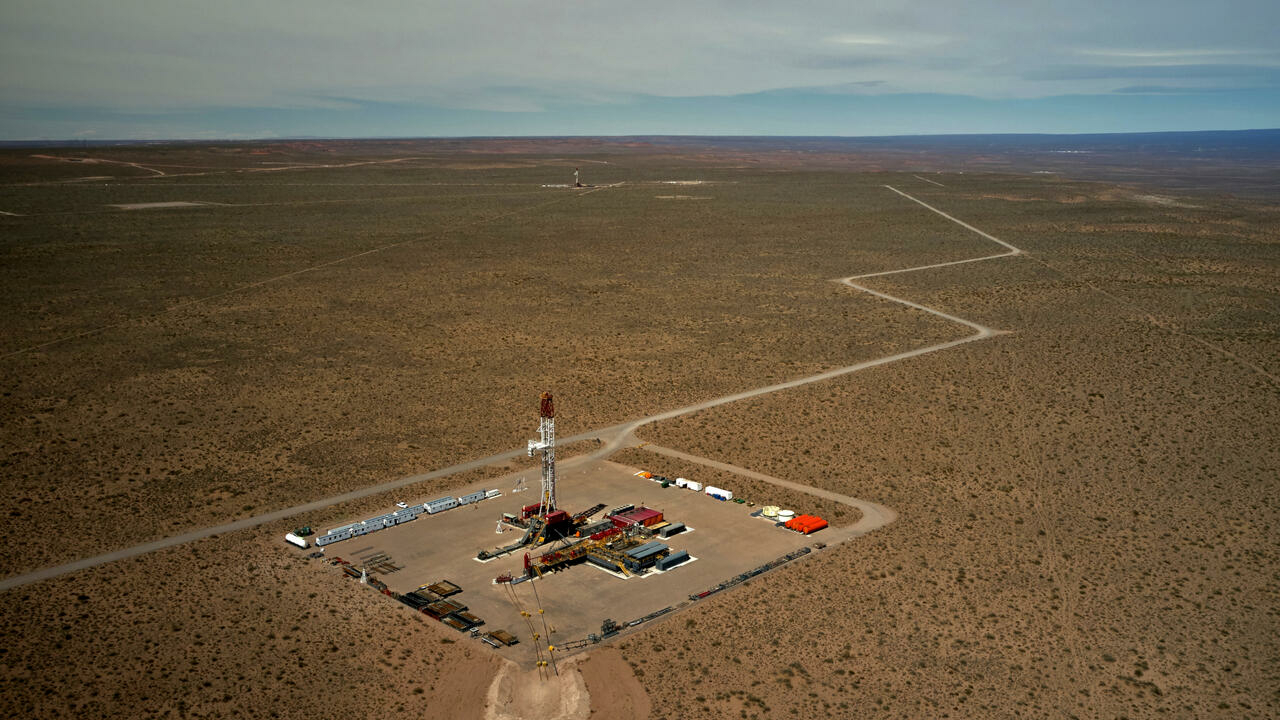
AFP
Argentina on Tuesday announced an easing of foreign exchange controls for the shale oil and gas industry in a bid to promote investment and boost production.
In an area known as Vaca Muerta in Patagonia, Argentina has what is considered the second-largest shale gas reserve in the world and the fourth largest of shale oil.
Extraction has been hampered by a lack of much-needed but costly investment, especially for hydraulic fracking.
On Tuesday, Economy Minister Martin Guzman said “a special regime for currency access” would be put in place for the hydrocarbon industry “to guarantee the special equipment they require,” especially for fracking.
About 20 oil companies have been operating in Vaca Muerta since 2013, including Chevron, Shell, Total and Statoil in partnership with the Argentine oil company YPF.
Since September 2019, Argentina has had exchange controls in place with a limited official rate of about 120 pesos for one dollar.
At the same time, currency can be exchanged at a rate of some 200 pesos to the dollar through debt bonds or on the informal market.
“We have a great opportunity in energy in Argentina. The next 15 years have great potential for development,” said President Alberto Fernandez, on a working trip with Guzman.
The government says oil production can increase by 70 percent and gas production by 30 percent over the next five years.
In recent months, Argentina has increased its production of hydrocarbons to reach a record 578,000 barrels per day in April — an increase of 13 percent in 12 months, according to the government.
Gas production in the same month was 127 million cubic meters, an increase of 12 percent year-on-year.
That has allowed the country to reverse five years of decline in oil production, said Guzman.
Last month, the government launched a construction tender phase for a gas pipeline from Vaca Muerta to the north of the country, to increase domestic supply and exports at a time when worldwide energy costs have shot up due to the war in Ukraine.
International
Death toll from southern Spain train crash rises to 40
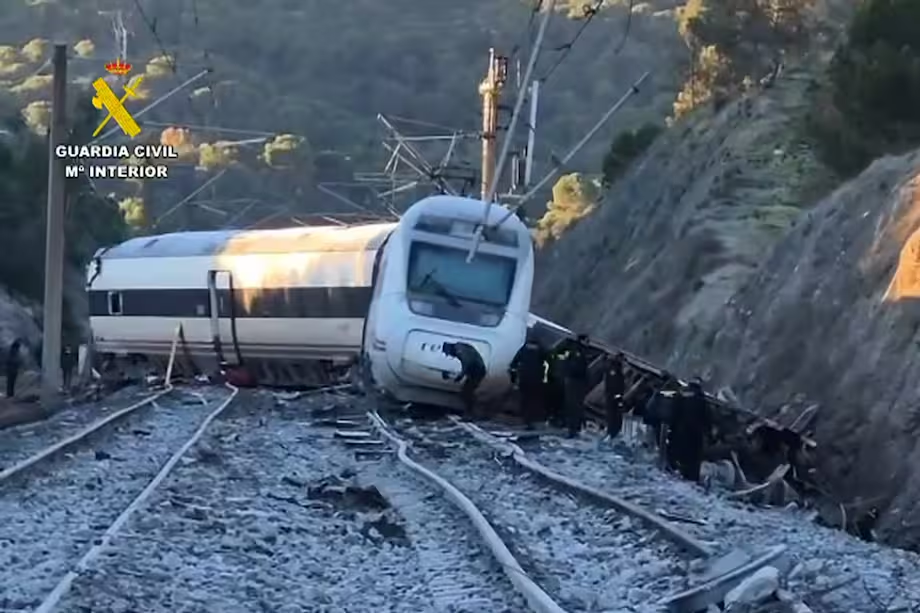
The death toll from the train accident that occurred on Sunday in southern Spain has risen to 40, according to investigative sources cited by EFE on Monday afternoon.
Since early Monday, search operations have focused on the damaged carriages of a Renfe train bound for Huelva, which collided with the last derailed cars of an Iryo train traveling from Málaga to Madrid after it left the tracks.
The crash has also left more than 150 people injured. Of these, 41 remain hospitalized, including 12 in intensive care units at hospitals across the Andalusia region.
More than 220 Civil Guard officers are working at the site, searching the railway line and surrounding areas for key evidence to help identify victims and determine the causes of the accident.
The tragedy has revived memories of the deadliest railway disasters in Europe in recent decades. In Spain, the most severe occurred on July 24, 2013, when an Alvia train derailed near Santiago de Compostela, killing 80 people and injuring 130 others.
At the European level, the worst rail disaster took place on June 3, 1998, in Eschede, northern Germany, when a high-speed train struck a bridge pillar at 200 kilometers per hour, resulting in 98 deaths and 120 injuries.
International
Spain’s Prime Minister pledges transparency after train crash kills at least 39
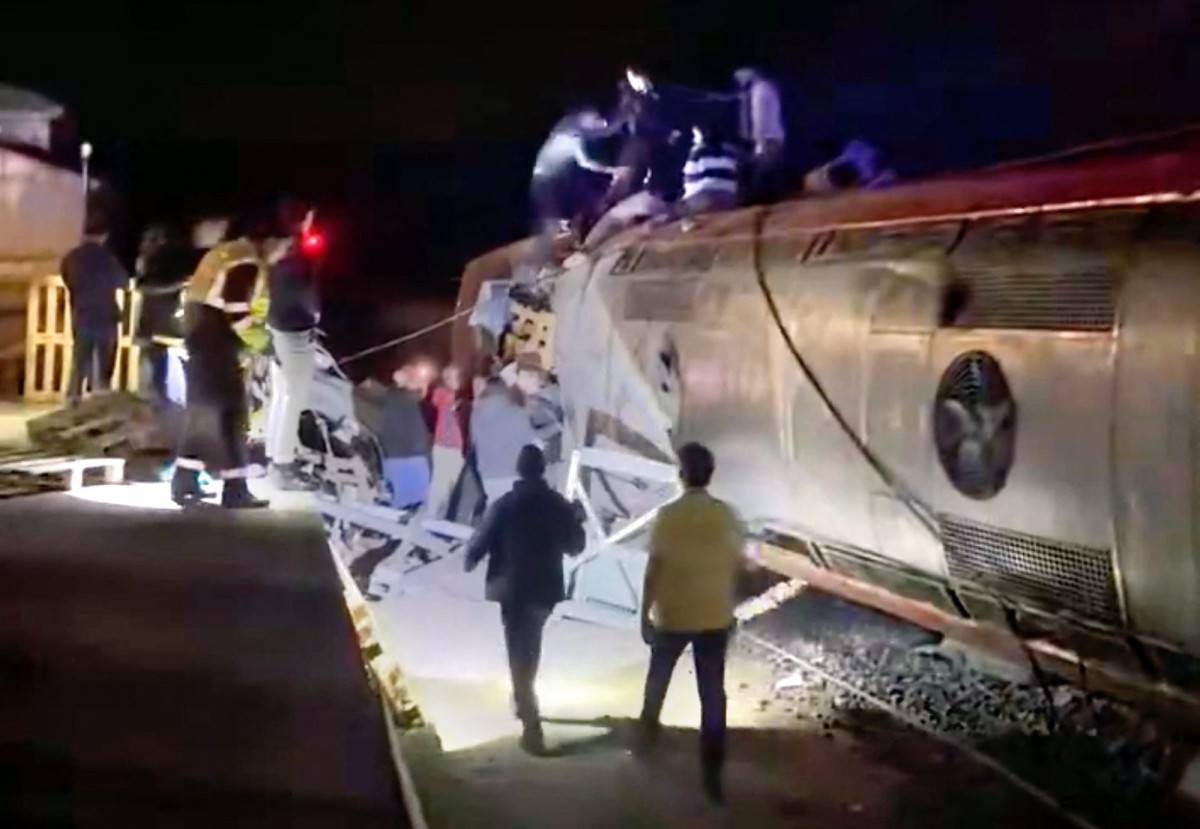
Spanish Prime Minister Pedro Sánchez pledged on Monday to ensure “absolute transparency” regarding the causes of a train crash that killed at least 39 people on Sunday in southern Spain, warning that the death toll could still rise.
The fatal accident occurred in the Andalusia region, where the number of confirmed deaths reached 39 by Monday morning, according to a spokesperson for the Ministry of the Interior.
Authorities were preparing to deploy heavy machinery to lift several derailed train cars. “We are waiting for cranes to be installed this morning to lift cars one, two and three of the Alvia train, which suffered the most damage,” said Andalusian regional president Juanma Moreno Bonilla on regional television. “It is likely that once they are lifted, we may find more victims,” he added.
The disaster also left more than 120 people injured. As of Monday afternoon, 43 victims remained hospitalized, including 12 in intensive care, according to emergency services.
International
Over 160 christian worshippers kidnapped in Kaduna Church attacks

More than 160 Christian worshippers were abducted on Sunday during coordinated attacks carried out by armed gangs on two churches in a remote village in Kaduna State, northern Nigeria, according to a cleric and a United Nations report accessed by AFP on Monday.
Nigeria, Africa’s most populous nation, has witnessed a renewed surge in mass kidnappings since November, prompting the United States government to carry out military strikes on Christmas Day in the northwestern state of Sokoto.
U.S. President Donald Trump accused Nigerian armed groups of targeting Christians, describing the violence as a form of “genocide” against the religious community.
According to Reverend Joseph Hayab, president of the Christian Association of Nigeria in the north, the attackers arrived in large numbers, blocked access to the churches, and forced worshippers to flee into nearby forests.
“The attackers came in large numbers, sealed off the entrances to the churches, and drove the faithful into the bush,” Hayab told AFP.
-

 International3 days ago
International3 days agoU.S. deportation flight returns venezuelans to Caracas after Maduro’s ouster
-

 International5 days ago
International5 days agoUkraine declares nationwide energy emergency amid russian attacks and extreme cold
-

 International5 days ago
International5 days agoX moves to block Grok from creating sexualized images of real people amid legal scrutiny
-

 International5 days ago
International5 days agoIran closes airspace amid U.S. threats and deadly nationwide protests
-

 International5 days ago
International5 days agoHillary Clinton skips Epstein inquiry as house panel threatens contempt charges
-

 International5 days ago
International5 days agoFrance joins Denmark’s ‘Operation Arctic Resistance’ in Greenland amid U.S. tensions
-

 Central America2 days ago
Central America2 days agoGuatemala prison uprisings leave 46 guards held by gangs
-

 International17 hours ago
International17 hours agoDeath toll from southern Spain train crash rises to 40
-

 International5 days ago
International5 days agoU.S.–Denmark tensions escalate as Trump pushes NATO to back U.S. claim on Greenland
-
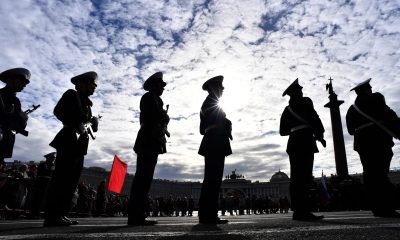
 International5 days ago
International5 days agoUK Intelligence estimates russian casualties in Ukraine at over 1.2 million
-
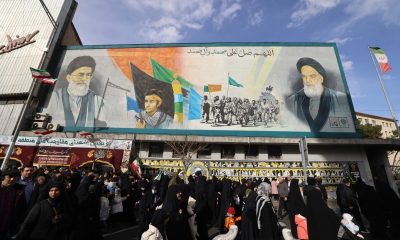
 International4 days ago
International4 days agoCanada accuses Iran of killing its citizen during anti-government unrest
-
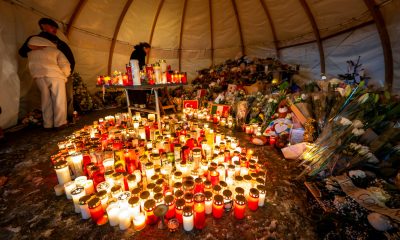
 International5 days ago
International5 days agoSwiss Canton of Valais Grants Emergency Aid to Victims of Crans-Montana Bar Tragedy
-

 International4 days ago
International4 days agoSheinbaum highlights anti-drug gains after U.S. says challenges remain
-

 International17 hours ago
International17 hours agoOver 160 christian worshippers kidnapped in Kaduna Church attacks
-

 Central America17 hours ago
Central America17 hours agoGuatemala raises police death toll to nine after gang violence escalates
-

 International2 days ago
International2 days agoChile declares state of catastrophe as wildfires rage in Ñuble and Biobío
-

 International3 days ago
International3 days agoFormer South Korean President Yoon sentenced to five years in prison
-

 International17 hours ago
International17 hours agoSpain’s Prime Minister pledges transparency after train crash kills at least 39


























